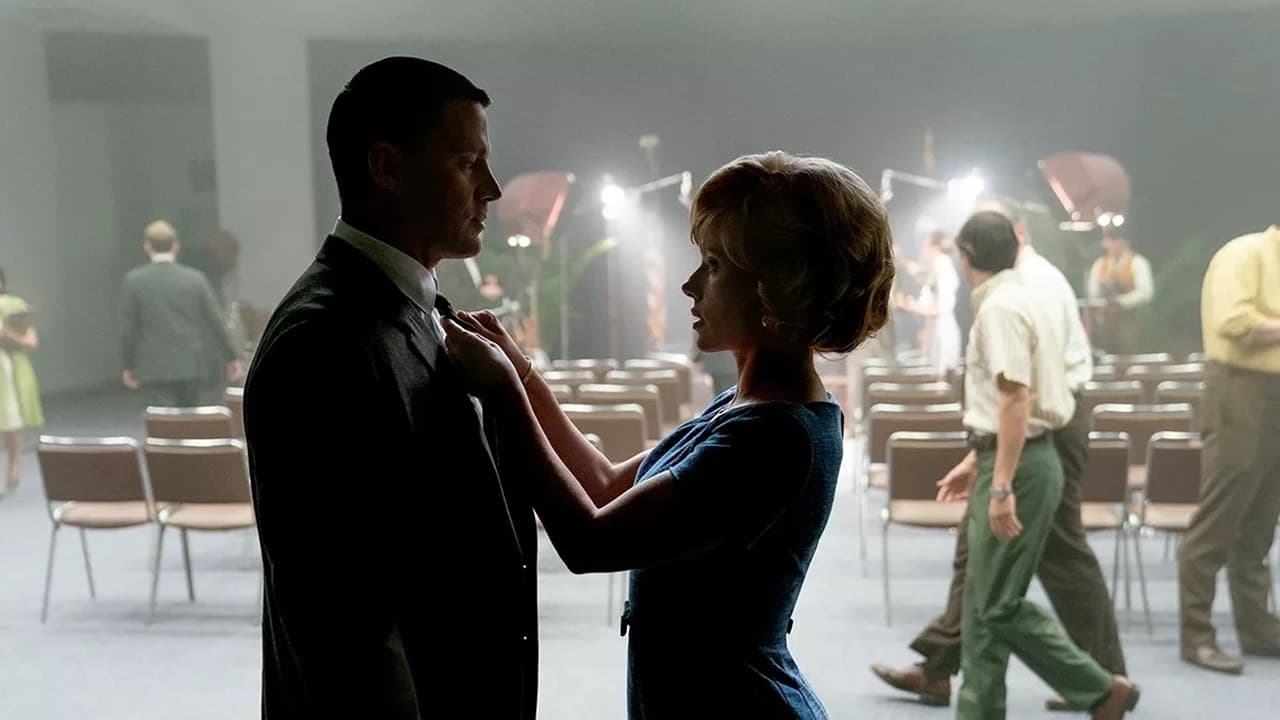Fly Me to the Moon
I bet you didn't expect a romcom to open by reminding you of the deaths of three astronauts in a launchpad fire in 1967.

Here's the thing.
For the first hour or so, it's a (fairly) normal romcom set against the backdrop of the space race. Kelly Jones (Scarlett Johansson) is a big city advertising wiz brought in by President Nixon to market NASA and remind a weary American public why they were so excited to go to the Moon in the first place. Cole Davis (Channing Tatum) is the launch director for Apollo 11, obsessed with overseeing every single detail of the project, testing and retesting and shielding his guys from distractions. He's haunted by the recent tragedy of Apollo 1, which is a bit of a morbid detail for a romcom, but it's hard (and probably inadvisable) to ignore when discussing our efforts to put a man on the Moon. You can see exactly how this is going to play out, but what makes it all work so well is the sheer magnetism on display in those two leads. Alone, they are balls of charisma and raw star power having a blast wearing their roles (especially Johansson). Together? It's hard to convey the crackling chemistry on display. And they're brought together just infrequently enough that every time they collide, sparks fly.
So why throw a wrench into it with this conspiracy theory nonsense?
Despite the marketing, that plot line is entirely confined to the second half, so I won't be going into detail (although I have a lot of thoughts). Suffice it to say it's a significant part of the proceedings, and the movie ultimately wants to have it both ways: they absolutely do not claim the Moon landing was faked, but also present a version of reality in which a fake version was filmed. Adding to the strangeness is that it opens with Moe Berkus (Woody Harrelson), a fictional Nixon aide, informing us that everything after the launch of Sputnik "has been the subject of dispute". Sure, events play out in such a way that it turns out this backup filming causes more problems than it solves, which I think is what they're going for. But the ways those issues manifest is so contrived that it distracts you from the bigger meaning they have in mind, only rising to the surface on further reflection. Which is a problem for a movie presenting itself so light and bouncy and vibrant, as there's little to encourage you to peel back the layers (unless you're so prone to overthinking movies that you started a personal blog about them).
That being said, the inclusion of the conspiracy theory usage thematically makes some sense. The movie is deeply concerned with the layers of artifice we build around ourselves, starting in the very first moments we meet Kelly, pillow stuffed under her blouse as she pitches Ford executives on her plan to boost Mustang sales by appealing to the desire of the woman of the house to keep her family safe. No point is too big or small to reinforce it: her alluded to checkered past, the reason Davis is launch director instead of in the capsule, even the cigarettes his deputy Henry Smalls frequently sneaks. It even works its way into the plot proper, contrasting the different approaches Kelly and Cole use to win people over, Kelly with posturing, and Cole with adhering to who he is even when it may make his life more difficult. That said, one of its weaknesses is how inconsequential many of the characters' failings are to their life now. The effort that goes into concealing the lie is not at all worth it for how little it will matter to those they know in the present. While it may be an intentional point being made by screenwriter Rose Gilroy, they land as dropped plot threads, with the sole exception of the background arc experienced by Kelly's assistant Ruby (Anna Garcia).
What is clear is that both screenwriter and director love NASA and are in awe of the space program. Despite the conspiracy stuff, there's a real reverence throughout for all the effort and technical know-how and dedication it took. They truly seem to believe in the power of exploration and discovery, of the beauty of space, and that it was indeed all worthwhile. There are numerous moments they take to appreciate the majesty of NASA's accomplishments, and they only get more intense and moving as Apollo 11 takes off and eventually touches down. I think it's the reason they bring up Apollo 1 so much, even making it an important part of the plot: they're trying to help keep the memories of Gus Grissom, Ed White, and Roger B. Chaffee alive fifty-seven years later, ensuring the American public never forgets the costs of the space race.
I'm not sure this will have the desired effect, but I respect the thought.